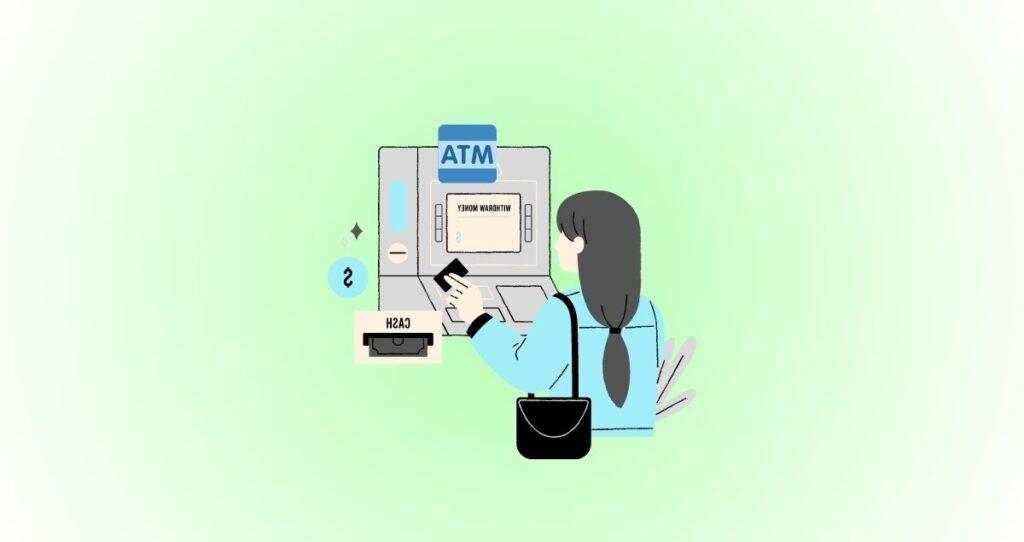Why are my credit scores different? Your credit score is a sensitive number that changes as new information is updated on your credit report. Major credit reporting bureaus(Equifax, TransUnion, Experian) put your credit report together and compile your credit score using credit scoring models. What causes your credit scores to be different? When you check your credit scores, you will notice that you have different credit scores. There are many factors that cause your credit scores to be different.
Your lenders and companies that manage your accounts report all activities related to your accounts to credit bureaus. Some creditors do not submit your information to all three credit bureaus which results in different information inside each bureau’s database and on your credit report. This in the end leads to different credit scores.
Credit reporting agencies also use different scoring models. These models differ from one agency to another and from one industry to another. For example, your FICO score is usually different than VantageScore. One company could put more weight on some elements in your credit report than other agencies. This will also result in different scores. There are other factors that cause your credit score to be different and this article has all the details you need.
Even if your credit scores are different, it does not mean one score is more accurate than the others. It simply means that independent companies looked at the information in your credit report and used credit scoring models to compute your score. It is rare that your scores are the same from all three credit bureaus.
This article will go over the details of why you have different credit scores from credit reporting bureaus.
Why are my credit scores different?
There are many reasons your credit scores are different. These differences in credit scores, however, do not have a major impact on the accuracy of each credit score. The differences should be minimal assuming each credit reporting agency that compiled your report received pretty much the same information.
Here are a few reasons why your credit scores are different.
- Your credit scores are different because of where your lenders submitted your information. Some lenders do not submit your information to all reporting companies. For example, if one reported your info to Experian but not Equifax, you will have slightly different credit scores from these two reporting agencies.
- Your lender might not have submitted your information at all: Some of your creditors will not submit your information to major credit bureaus.
- Credit reporting bureaus use different credit scoring models when calculating your credit score. Some bureaus apply different weights to some information in your report compared to others. This ends up creating a mismatch in your credit score.
- Your score can also vary based on industry. A credit score is a number that changes regularly. Lenders use different scoring models based on the industry.
Credit scoring models
Credit scoring models are statistical analyses that credit reporting agencies use to determine how risky it is to lend you credit. The scoring calculation focus on your:
- Frequency of payment
- Debts you have
- Payment record
- Debt charge offs
- Number of credit accounts you have
Your debt payment patterns are analyzed and different weights are assigned to each factor to determine your credit rating(credit score). Although there are many credit scoring models, FICO Scoring Model and Vantage Score model are more common.
What are the main credit scoring models?
There are many credit scoring models used in many industries. However, the following are some of the scoring models you will come across.
- Vantage Score Model: The Vantage Score Model was introduced to compete with FICO Score Model and it is based on the following elements from your credit report.
- Payment history: 40%
- Age and type of credit: 21%
- Credit utilization: 20%
- Total balance: 11%
- Recent activities: 5%
- Available credit: 3%
- FICO Score Model: The FICO Score Model is a classic scoring model that relies on the following elements of your credit report.
- Payment history: 35%
- Credit utilization: 30%
- Age of your credit or credit history: 15%
- New credit: 10%
- Types of credits you have: 10%
- Experian’s National Equivalency Score: Scores from this credit scoring model range from 0 to 1,000. The factors considered in this model include your credit age, credit utilization, number of inquiries, payment history, and total balances.
- Insurance Score: This model is specifically designed for insurance companies and it ranges from 200 to 997. A 500 score or less is poor while a 700 or higher is better.
- Credit Xpert Credit Score: This model was developed for business use. Businesses use this model to help in the evaluation of new people who are applying for credit.
- CE Credit Score: Scores with this model ranges from 330 to 850.
- TransRisk: This model is not popular and it uses data from TransUnion. Rather than focusing on existing accounts, this model evaluates a person’s risk on new accounts.
What is a credit score used for?
Your credit score (sometimes referred to as credit rating) helps lenders to determine your creditworthiness. In other words, a lender uses your credit rating to assess the risk associated with lending you money. It is unlikely that the mortgage lender knows you personally. Even if they know you, it is hard to know your behavior when it comes to borrowing.
In this case, they will have to rely on a metric that shows your financial standing and behavior when it comes to borrowing. That is where your credit score and credit history come in.
Most credit scores range from 300 to 850. The lowest score you can have in this range is 300 and the highest score is 850. The lower your credit score gets, the riskier it is to lend you money. Risky borrowers do not get approved for credit and when they get approved, they pay the highest interest rate.
How is credit score calculated?
Any loans you have, balances, credit usage, mortgages, payment history, collections, tax liens, etc., all will be reported to three major credit reporting bureaus. These bureaus will organize your credit information and put it in a format that is easy to read and understand known as a credit report. These bureaus will then extract some information from your credit report to calculate your credit score using credit scoring models such as FICO score Model or the Vantage Score Model.
Your credit scores are usually updated once a month or multiple times. This is because you make monthly payments on your loans, credit card debts, student loans, mortgage, rent, utility bills, etc. All these activities are reported on a monthly basis but the submission dates are different from one company to another. As a result, your credit report is updated once every month or multiple times.
New information on your credit report has a direct impact on your credit score. If for example, a missed payment is reported to credit reporting bureaus, you will see a great decrease in your credit score.
Why are your credit scores different (in more detail)?
When you check your credit scores, you will see that they are different from one reporting agency to another. There are many factors that cause the variations in credit reports. The following are some of the reasons your credit scores are different.
1. Your credit scores are not the same due to reporting agencies your lenders used
Your credit scores differ based on the credit reporting companies your creditors use. Some lenders do not report your information to all credit bureaus. Others do not report your information at all. For example, if your lenders only reported your information to Equifax and TransUnion but not Experian, your credit reports will not have the same information. As a result, your credit scores will be different.
Credit reporting agencies rely on the information they received from your lenders. If something is not reported, it will not be on your credit report.
2. Credit reporting bureaus use different credit scoring models
There are many credit scoring models used to calculate your credit scores. These models vary from one agency to another and from one industry to another. Since creditors use your credit score to evaluate how risky it is to lend you money; creditors, scoring agencies, and lenders will use different scoring models. Each model will be specific for that industry to minimize its risks.
For this reason, they will apply different weights to information reported on your credit report based on what they think is more important in their specific industry. Hence, causing variations in your credit scores.
For example, if you want a personal loan, the lender will use a credit score that judges your behavior when it comes to personal loans. On the other hand, if you want a mortgage, the lender will use a score that aligns with the mortgage industry.
3. Your credit scores are different because your information has been updated
If your credit score is different from what you have seen last time, it is because your credit report has been updated.
For example, if you applied for a new loan or credit card, you might see a decrease in your credit score. This is because the lender will request to see your credit file before approving you for the loan. This activity will result in a hard inquiry on your credit report which will reduce your score.
The upside of this effect, for example, is making a large payment. If you owed a lot of money to your credit account and paid it off; you will notice a great increase in your score.
This is because that large payment will significantly lower your credit utilization which affects your credit score by 30%. A lower utilization automatically increases your credit score. Credit utilization is the ratio of the money you have spent over the available credit limit expressed as a percentage.
When you make a payment, your credit score does not reflect the changes immediately. There is a delay between the time you make a payment and when that information is reported and updated on your credit report.
If you checked your score a month ago and it shows something different from last time, it is possible that your information has been updated.
How to keep my credit score healthy?
Your credit score is a sensitive number and it changes due to financial decisions you make on a daily basis. In order to keep your credit score healthy, you will need to follow these steps.
- Keep your credit report clean. Your credit score is calculated based on information from your credit report. By cleaning up your credit report, you get to keep it updated. This is the first step to improving your credit and increasing your credit score. In this process, you will make sure that every error, inaccuracy, identity theft, or other forms of theft is corrected or removed from your report. You can also try to remove negative information(negative times) from your report. There are some items that can’t just be removed such as bankruptcies, foreclosure, collections, etc. Some of these negative items will stay on your credit report for about 7 years. However, if you have hard inquiries that did not fall off your report after 2 years, you can dispute them.
- Make all your payments on time. If you can’t make all of your due payments on time, you are automatically a bad borrower. That is why your payment history affects your credit score by 35%. Always pay all your dues on time.
- Watch your spending habits. Your credit utilization is the second highest factor in your credit score calculations. A high utilization shows that you rely on debt to cover your expenses. A high utilization makes you a bad borrower. Keep your utilization under 30% or under 10% if you can. This will keep your credit score healthy and prevent you from getting into credit card debts.
- Do not apply for too much credit. Every time you apply for new credit, the lender requests to see your credit file. This activity results in a hard inquiry which knocks off about 5-6 points from your score. By applying for too many credit accounts, you automatically lower your credit score due to hard inquiries.









